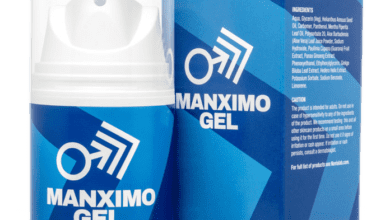
Functional Movement Screening: Assessing Your Mobility
Functional Movement Screening: Assessing Your Mobility
Introduction
Functional Movement Screening (FMS) is a valuable tool used by fitness professionals, physical therapists, and athletes to evaluate and improve movement patterns. Whether you’re an athlete looking to optimize your performance or an individual interested in preventing injuries and enhancing overall well-being, understanding FMS can be a game-changer. In this article, we will delve into the world of Functional Movement Screening, exploring its significance, the assessment process, and the benefits it offers for individuals of all fitness levels.
What is Functional Movement Screening (FMS)?
Functional Movement Screening, often referred to as FMS, is a systematic approach to evaluating and grading the quality of fundamental movement patterns in individuals. Developed by physical therapist Gray Cook and athletic trainer Lee Burton, FMS focuses on assessing seven key movements that are essential for daily activities and sports performance. These movements are:
- Deep Squat
- Hurdle Step
- In-Line Lunge
- Shoulder Mobility
- Active Straight Leg Raise
- Trunk Stability Push-Up
- Rotary Stability
Each of these movements is scored based on a set of specific criteria, allowing professionals to identify any dysfunctions or limitations in an individual’s mobility and stability. The ultimate goal of FMS is to detect and address these limitations before they lead to injuries or hinder performance.
The FMS Assessment Process
Understanding the FMS assessment process is essential to grasp its significance and benefits.
1. Pre-Assessment Screening
Before conducting the FMS assessment, it’s crucial to gather information about the individual’s medical history, current physical condition, and any specific goals they may have. This initial step helps the evaluator tailor the assessment to the individual’s unique needs and concerns.
2. The Seven Fundamental Movements
The heart of FMS lies in the evaluation of the seven fundamental movements mentioned earlier. During the assessment, the individual is asked to perform each movement pattern while being closely observed by a trained professional. The professional grades each movement on a scale from 0 to 3, with 3 indicating perfect execution and 0 indicating pain during the movement. The scores are recorded for each movement.
3. Score Interpretation
Once the seven movements are assessed and scored, the results are analyzed to identify any asymmetries, limitations, or dysfunctions. These findings provide valuable insights into an individual’s mobility and stability. It’s important to note that a low score in one or more movements doesn’t necessarily indicate a problem but rather highlights areas that need attention.
4. Individualized Correctional Strategies
Based on the assessment results, specific corrective exercises and strategies are recommended to address the identified issues. These corrective exercises are designed to improve mobility, stability, and overall movement patterns. They can be integrated into an individual’s training or rehabilitation program.
Benefits of Functional Movement Screening
Discover the advantages of incorporating FMS into your fitness routine.
1. Injury Prevention
One of the primary benefits of FMS is its role in injury prevention. By identifying movement limitations and dysfunctions early on, individuals can work on correcting these issues before they lead to injuries. This is especially crucial for athletes and those engaged in physically demanding activities.
2. Enhanced Athletic Performance
Athletes, both amateur and professional, can significantly benefit from FMS. By optimizing movement patterns and addressing any deficiencies, athletes can improve their performance on the field, track, or court. FMS can help enhance agility, speed, and overall athleticism.
3. Personalized Training Programs
FMS provides a personalized roadmap for individuals looking to improve their fitness. By pinpointing specific areas that need attention, trainers and physical therapists can design tailored exercise programs that yield more effective results.
4. Increased Quality of Life
For individuals seeking better overall health and well-being, FMS offers a means to identify and address movement limitations that may affect daily activities. Improved mobility and stability can lead to a better quality of life, especially as we age.
5. Accountability and Progress Tracking
FMS is not a one-time assessment. Regular re-evaluations can track an individual’s progress and ensure that corrective exercises are effective. This built-in accountability can help individuals stay motivated and committed to their fitness goals.
Who Can Benefit from FMS?
Functional Movement Screening is not limited to elite athletes; it can benefit anyone interested in improving their mobility and movement patterns. Here are some groups of people who can particularly benefit from FMS:
1. Athletes of All Levels: From professional athletes to weekend warriors, FMS can help individuals optimize their performance and reduce the risk of injuries.
2. Fitness Enthusiasts: Whether you’re a gym-goer, a CrossFit enthusiast, or a yoga practitioner, FMS can enhance your training by ensuring that you move correctly and efficiently.
3. Rehabilitation Patients: Individuals recovering from injuries or surgeries can use FMS to track their progress and identify areas that require attention during their rehabilitation process.
4. Active Older Adults: Maintaining mobility and stability is crucial for older adults to lead an active and independent lifestyle. FMS can help them stay agile and prevent falls.
Conclusion
Functional Movement Screening is a powerful tool that provides individuals with valuable insights into their mobility and stability. By assessing and addressing movement limitations and dysfunctions, FMS offers a pathway to injury prevention, enhanced athletic performance, and improved overall well-being. Whether you’re an athlete looking to excel in your sport or someone seeking a healthier, more active life, incorporating FMS into your fitness routine can be a game-changer. Remember, investing in your movement health today can lead to a brighter, more mobile future.
Read this article




